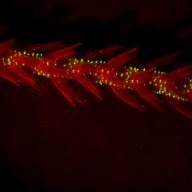Name: John Camarda
Years of experience: 12
Occupation: Professor of Mechanical Engineering Technology/Researcher
Q. How did you get started in your industry?
A. My father was a tool and die maker/mechanical designer. I followed in his footsteps and had the opportunity to apprentice with him.
Q. Describe some of the ideal qualities a person should have to succeed in your industry?
A. Tool makers and engineers will experience an incredible diversity of design challenges during their careers. Someone who is highly adaptive and resourceful will thrive in this environment.
Q. What do you like most about your job?
A. The diversity of work. I have had the opportunity to work on various projects in automotive, health care, personal electronics and infrastructure development, in Canada and overseas. My current research deals with implant design for orthopedic surgery. There is a lot more to mechanical engineering than the automotive industry.
Q. What kind of background, either educational or other, best suits someone starting out in your industry?
A. Strong problem-solving and analytical skills are essential. Most companies are looking for applicants who have completed either a three-year college diploma in mechanical engineering technology, or a university degree in mechanical engineering.
Q. For newcomers to the industry, what tips would you offer them?
A. Our students at George Brown College are encouraged to participate within a number of extra curricular associations.
Some of our students attend the Society of Manufacturing Engineer’s local Chapter 26 monthly seminar and company tour series.
It is a great chance for them to network with professionals in the industry and make future job contacts.
There are a number of professional organizations out there that offer reduced membership rates for current students and recent grads.
Q. What are the challenging aspects of your industry?
A. One day you could be trouble-shooting problems with a hydraulic system, and the next day in a plane running simulations during a flight test. It is always something different. Even if you have worked on a similar type of project before, there is always something new.
















